JUNE 2022. Blues Vol 38 No. 6.1
- Text
- Wwwbluespdmagcom
- Additional
- Uvalde
- Trooper
- Chiefs
- Responders
- Heroes
- Galveston
- Tango
- Enforcement
- Blues
DR. TINA JAECKLE blue
DR. TINA JAECKLE blue mental health Shattered: Moral Injury and the Uvalde, Texas Tragedy “It looked like a war zone. Complete chaos and trauma and young, innocent victims literally everywhere. We didn’t even know where to begin. We were also in shock”. These were the words spoken to me during a recent debrief with a first responder who was present in the moments following the mass casualty disaster in Uvalde, Texas on May 24, 2022. Much like the critical incident that occurred at Sandy Hook Elementary School in Newtown, Connecticut on December 14, 2012, the nation was stunned and in disbelief that this could occur and impact our children so heavily. The survivors, relatives of the victims, and first responders from Sandy Hook have openly expressed their anger and frustration that this could happen… again. Between these two major events, thirty-nine of the forty-seven victims were children. In the days following the Uvalde shooting, the response by law enforcement has now taken center stage and the United States Department of Justice recently announced that they will be conducting an indepth investigation. It is important to note that numerous law enforcement and first responder agencies were on scene and the attempts to coordinate were extremely challenging. It will undoubtedly take time to fully understand the timeline and decision-making processes that impacted the ultimate outcome. However, there are some consistently shared emotions among many of these officers, a sense of complete and utter helplessness to tactically save these children. This can lead to a state of psychological distress called moral injury. While there is significant research into understanding moral injury and its effects, most of these studies have been geared toward military members and veterans. There is, however, also evidence of moral injury in law enforcement, given the potential to witness or experience a traumatic event. Police officers routinely encounter criminal and violent acts as part of their jobs. Consistent exposure to these stressors can have a significant impact on an officer’s physical and mental well-being. Some potential stressors that officers have identified include the inability to rescue a seriously injured victim, the use of force on a suspect, lethal or otherwise, or following orders that go against their personal beliefs, such as breaking up a protest. Additionally, it is common for officers to have feelings of emotional exhaustion and depersonalization. Due to these factors, as well as the symptoms discussed above, such as selfblame, anxiety, and remorse, law enforcement officers are likely to experience burnout. This may result in the decision to leave the policing field altogether. As I was authoring this article, I contacted a colleague and clinician, Andy Carrier (Retired Captain, Georgia Department of Public Safety and current Chief Operating Officer of Valor Station, Augusta, Georgia) who is currently offering critical incident stress management DR. TINA JAECKLE and peer support services to first responders in Uvalde, Texas. We discussed the significant issue of moral injury and he shared that he has already observed this is some of the law enforcement officers he has encountered. He further noted that the current national scrutiny on the law enforcement response has complicated the emotional and psychological reactions and fall out for the officers impacted by this crisis. As we spoke, Andy shared that the funeral services for the victims have now begun, adding an additional layer of sadness and remorse to this tragedy. It is essential to gain a deeper understanding of the potential symptoms indicating the presence of moral injury. These include, but are not limited to, social withdrawal and alienation; aggression; lack of trust in self or others; loss of religious faith; loss of trust in morality or meaning; a sense of powerlessness or resignation; relationship issues; depression; anxiety; anger; revenge seeking; shame; guilt; self-loathing; remorse; feelings of being damaged, worthless, helpless; nightmares; flashbacks; intrusive recollections; sense of loss of identity or role; reduced empathy or wanting to interact with others; impairment in social, personal and occupational functioning; increase in substance use; and suicidal ideation. In addition, there is a great deal of overlap between moral injury and posttraumatic stress disorder (PTSD). Both begin with an event that is often life threatening or harmful to self or others. Guilt and shame are core features of moral injury and are also symptoms of PTSD. The betrayal and loss of trust that could be experienced with moral injury are also common features of PTSD. What can be done to assist in healing from moral injury? While treatments for moral injury are still in development, there has been some success through the use of cognitive behavioral therapy emphasizing forgiveness and self-compassion to reduce anxiety and depressive symptoms for officers. The same treatment has also fostered post-traumatic growth. In addition, practices like meditation, mindfulness, resilience skills, exercise, and healthy eating are helpful, but they often do not address the root cause of moral injury. Most importantly, moving away from avoidance and speaking openly about one’s experience is often the first step of moving beyond moral injury. Those with a moral injury should reach out to a trusted individual who will not judge their experience. This could be a family member, close friend, support group of those with similar experiences, a religious or spiritual leader, or a therapist. This outside perspective can help validate the person’s feelings and provide a more forgiving outlook. Awareness of the risks of moral injury among those in law enforcement can encourage preventive actions and highlight the need for timely support. Moral injury in law enforcement is a growing issue that clearly requires more research and examination. For more information on this issue, I encourage you to refer to the following article: Papazoglou, Konstantinos et al. “The Role of Moral Injury in PTSD Among Law Enforcement Officers: A Brief Report.” Frontiers in psychology vol. 11 310. 4 Mar. 2020, doi:10.3389/ fpsyg.2020.00310 To all the law enforcement officers, first responders, the Uvalde community, and the families of the victims, we at the BLUES Police Magazine send our thoughts and prayers for comfort and guidance during this very difficult journey. 100 The BLUES POLICE MAGAZINE The BLUES POLICE MAGAZINE 101
- Page 1 and 2:
The BLUES POLICE MAGAZINE 1
- Page 4:
FOUNDED IN 1984 OUR TEAM MICHAEL BA
- Page 8:
FROM THE GUEST EDITOR’S DESK CONG
- Page 12:
READERS SPEAK OUT your views ONE DA
- Page 16:
AROUND THE COUNTRY GCSO SGT. HIT BY
- Page 20:
AROUND THE COUNTRY YOU CAN’T HIDE
- Page 24:
AROUND THE COUNTRY MEALER WINS RUNO
- Page 28:
By Michael Barron MASSACRE IN UVALD
- Page 32:
Texas School District Chiefs Associ
- Page 36:
Texas School District Chiefs Associ
- Page 40:
40 The BLUES POLICE MAGAZINE The BL
- Page 44:
Texas School District Chiefs Associ
- Page 48: Head Down to Galveston Island Katie
- Page 52: HONORING A FALLEN HERO DEPUTY ROBER
- Page 56: HONORING A FALLEN HERO DEPUTY ROBER
- Page 60: EST. 1953 ® Starting January 1, 20
- Page 64: EST. 1953 ® On August 12, 2021, De
- Page 68: EST. 1953 ® DEPUTY NOE RODRIGUEZ,
- Page 72: EST. 1953 ® On September 20, 2021,
- Page 76: EST. 1953 ® On February 20, 2021,
- Page 80: REMEMBERING THOSE WE’VE LOST Lost
- Page 84: Drunk Mom Kills 6yr Old Daughter In
- Page 88: BOSTON’S FINEST Part of the reaso
- Page 92: DARYL LOTT daryl’s deliberations
- Page 96: NOT SO BRIGHT AWARD lig ht bul b aw
- Page 102: ADS BACK IN THE DAY 102 The BLUES P
- Page 106: THERE ARE NO WORDS parting shots...
- Page 110: Gillespie County Sheriff's Office G
- Page 114: BECOME A BAYTOWN PATROL OFFICER! ST
- Page 118: BEDFORD POLICE DEPARTMENT WE'RE HIR
- Page 122: Forney ISD Police Department NOW HI
- Page 126: GALVESTON COUNTY SHERIFF’S OFFICE
- Page 130: Memorial Villages Police Department
- Page 134: MAKE A DIFFERENCE IN YOUR COMMUNITY
- Page 138: City of Wylie Police Department OFF
- Page 142: 142 The BLUES POLICE MAGAZINE BACK
Inappropriate
Loading...
Mail this publication
Loading...
Embed
Loading...




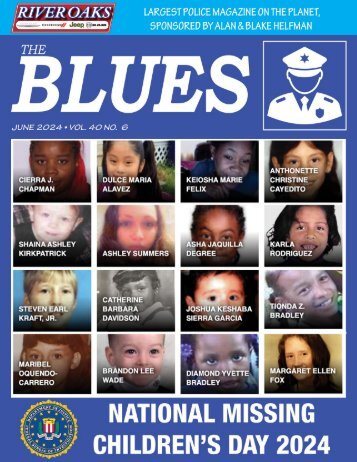
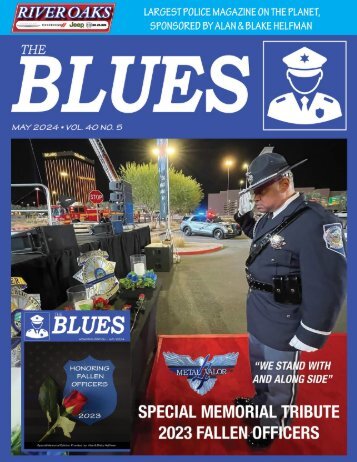
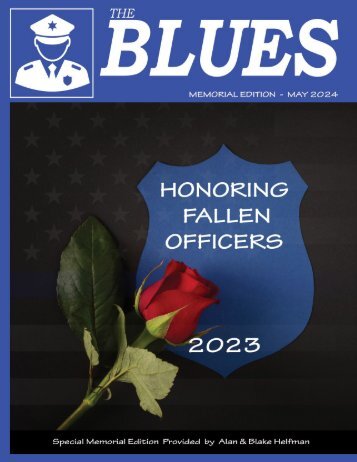
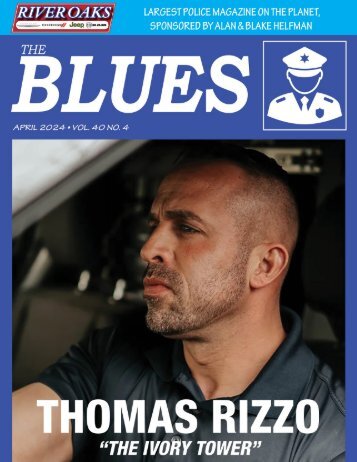
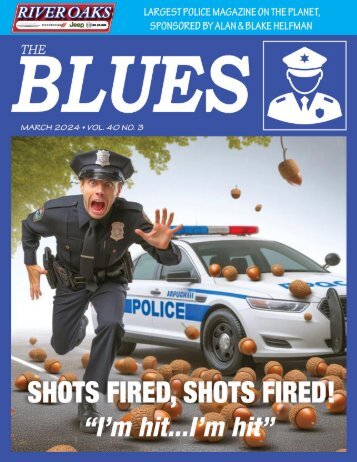

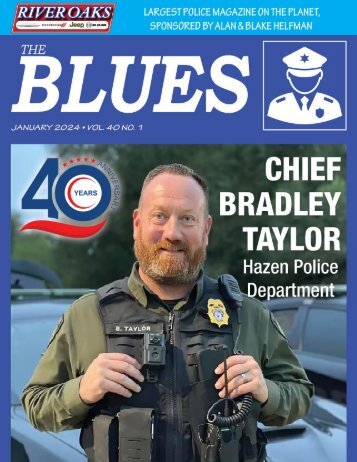



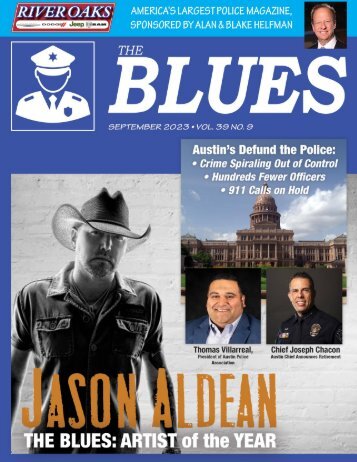
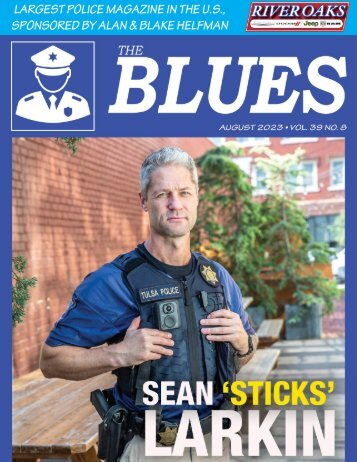


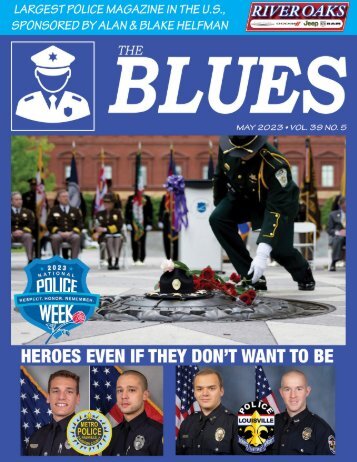
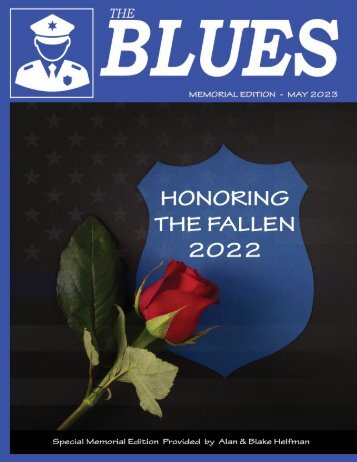
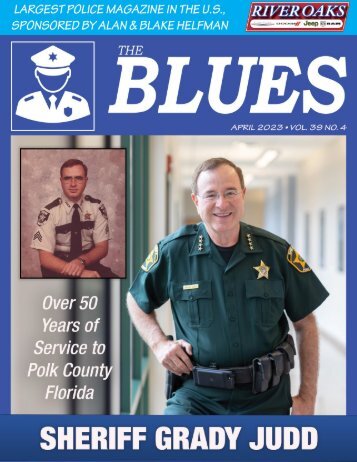
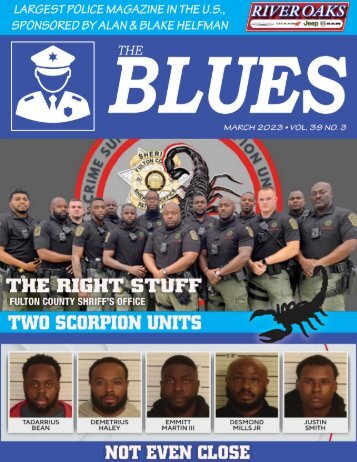

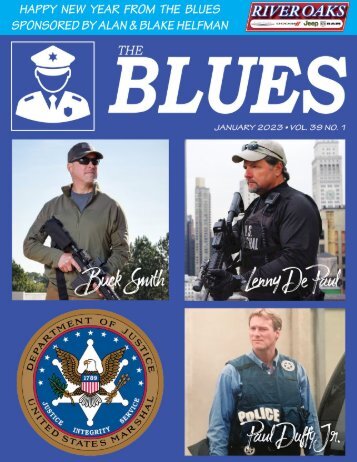



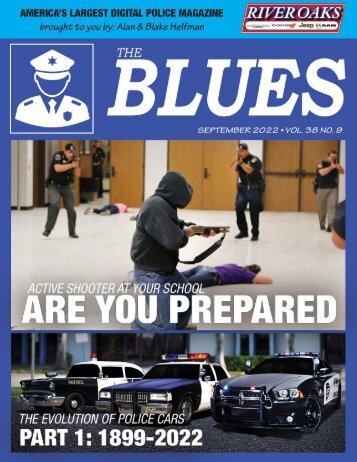


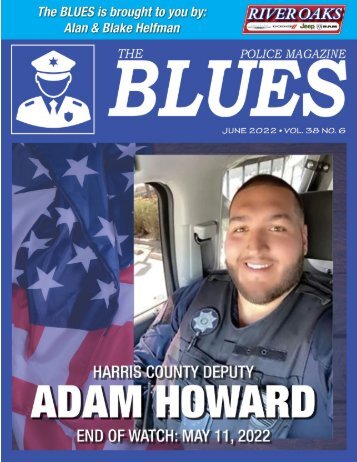

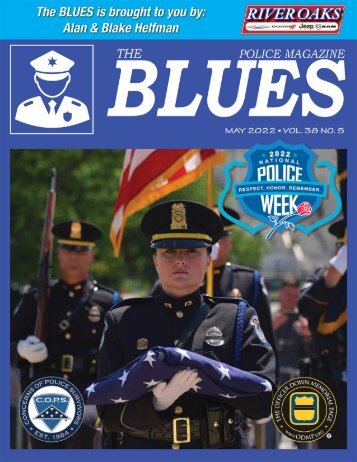
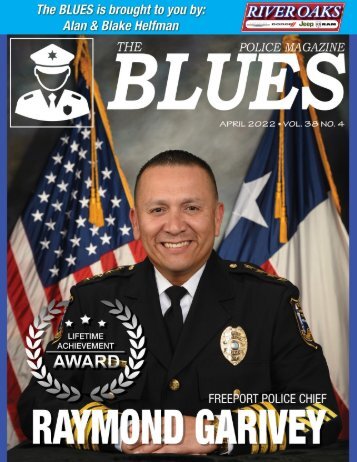
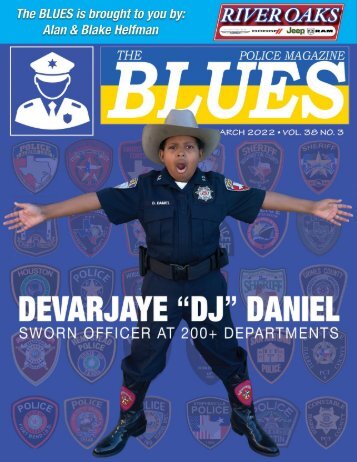
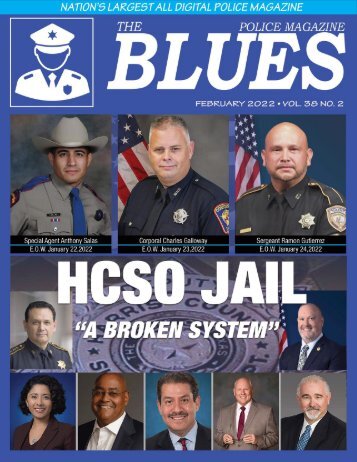
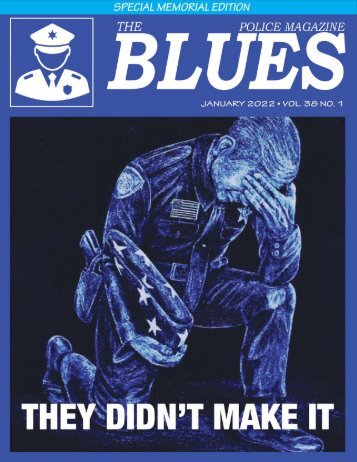


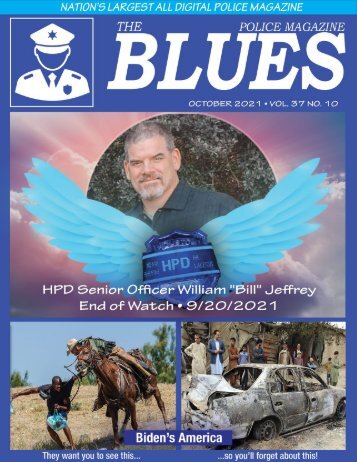
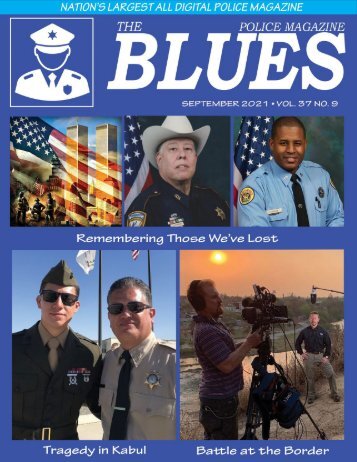





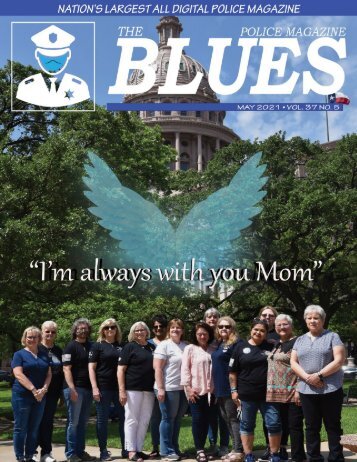

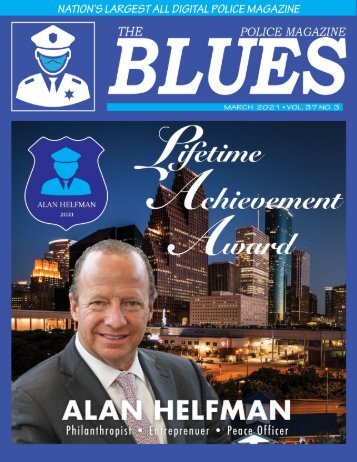
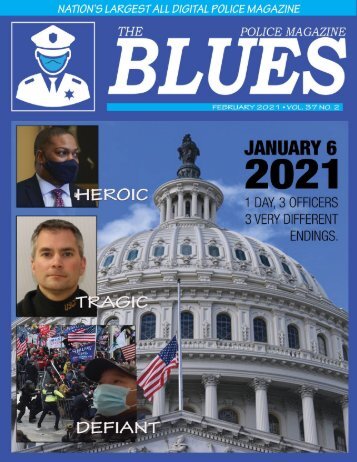


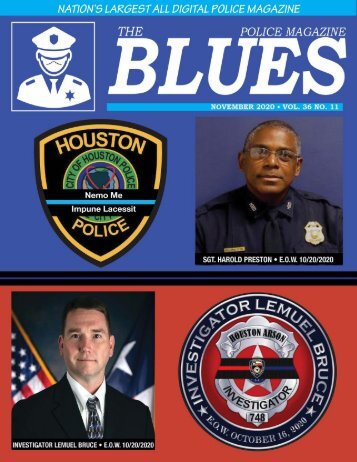


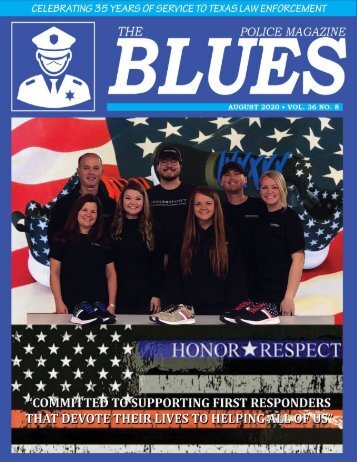

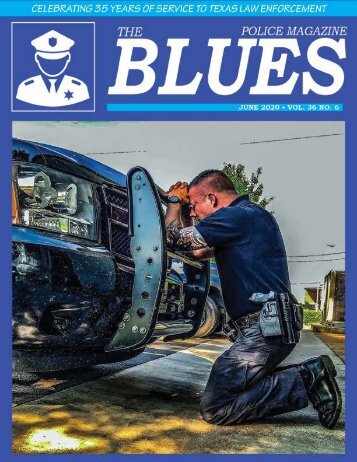

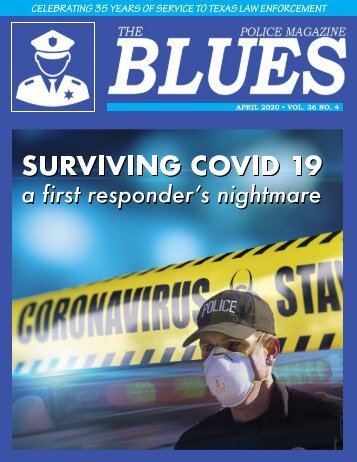
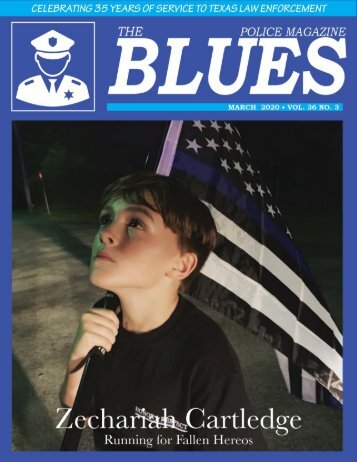
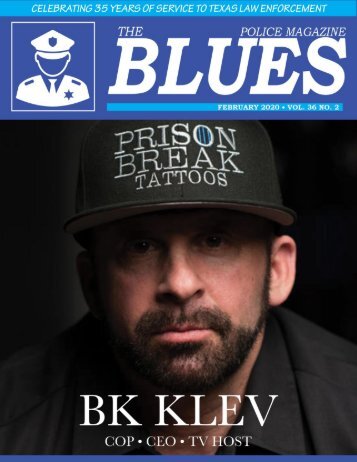

Follow Us
Facebook